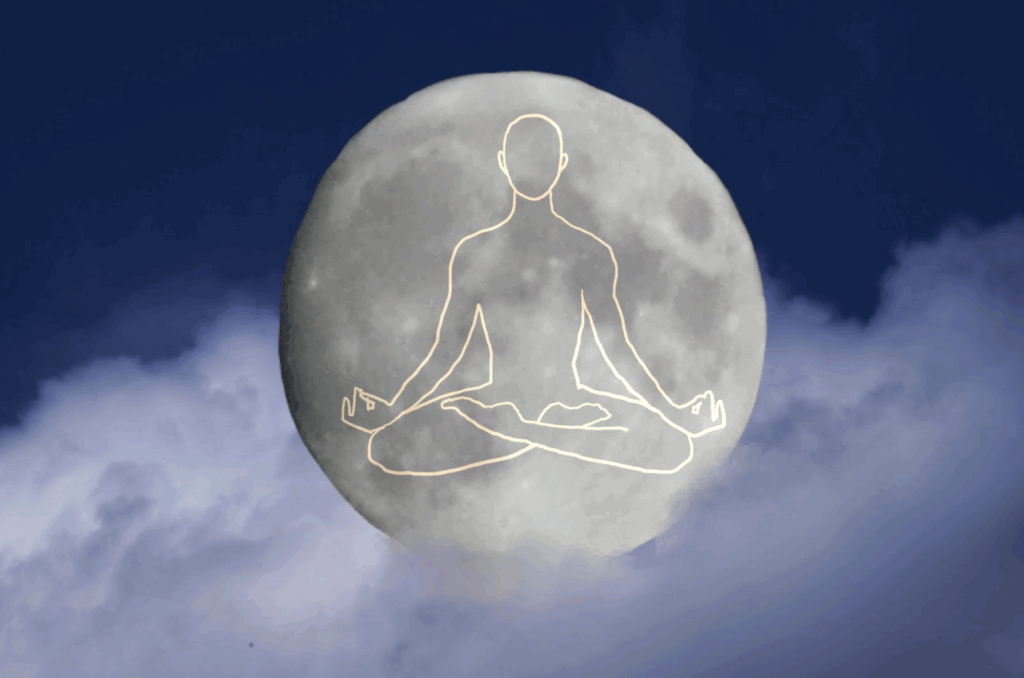How Morning and Night Meditation Changed My States of Mind

Gently Continuing Meditation in the Morning and at Night
Gently Continuing Meditation in the Morning and at Night
As I kept practicing evening meditation with a meditation app, began to wonder: Could morning meditation and evening meditation with a meditation app really balance my states of mind?” Out of this curiosity, I decided to take the next step and try morning meditation as well.
In the past, my mornings were filled with endless tasks running through my head, and my nights often ended in exhaustion without restful sleep. That’s when I thought, “Could my states of mind actually change if I used a meditation app for both morning meditation and evening meditation?”
I discovered that morning meditation helps reset my autonomic nervous system and start the day smoothly, while evening meditation allows me to release stress and relax into deeper sleep. In this article, I’ll share the concrete changes I noticed by continuing both morning and evening meditation with a meditation app, based on my own experience.
Morning Meditation App and Shifts in States of Mind: Starting the Day in Stillness
The first thing I noticed after adding meditation to my morning routine was a new sense of calm spaciousness. Instead of opening my phone right away, I got up just five minutes earlier, set the app, and focused on my breathing. That simple act reset my endless “to-do list” and left me feeling lighter. These practices gradually harmonize different states of mind—from tension to relaxation, from scattered focus to centered calm.
Tangible benefits of morning meditation:
- My thoughts became clearer, improving focus.
- I felt less irritated on the crowded commute and stayed calm.
- My autonomic nervous system felt balanced, making it easier to start the day.
One morning, when the train was delayed, I found myself simply thinking, “It’s late,” without spiraling into frustration. This was proof that the habit of bringing awareness back to the present moment—cultivated through meditation—was now carrying over into daily life.

How a Meditation App Supports Easy Habit-Building
I practice with the Gassho meditation app, which makes the habit incredibly simple. All I need to do is listen to the sounds, focus on my breath for a few minutes, and I instantly feel it’s manageable even as a beginner. Spending just “five quiet minutes in the morning” is enough to reset my mind.
Evening Meditation App and Shifts in States of Mind: Closing the Day with Release
For me, evening meditation became a kind of “cool-down” ritual. At first, I only expected it to help me fall asleep. But over time, I realized it meant something much more. Evening sessions created a natural transition in my states of mind, shifting from work-driven stress into restful acceptance.

What I experienced during evening meditation:
- A sense of reassurance that “today ends with today.”
- The feeling of tidying up my mind, which improved my sleep quality.
- A moment to truly accept myself.
One evening, after making a mistake at work, I was feeling low. But during meditation, I naturally thought, “Let’s leave today’s troubles with today.” That’s when the meditation app shifted from being just a sleep aid into a deeper habit that balances my states of mind.
Seasonal and Lifestyle Variations in Meditation
The practice of meditation changes depending on the season and lifestyle:
- Hot summer nights → Even with the hum of the air conditioner, focusing on the meditation app quiets the mind.
- Cold winter mornings → Rising from bed a little earlier to meditate creates a steady rhythm for the day.
- Lifestyle needs → Students can use it to ease exam anxiety; professionals can refresh before work or after late hours.
In addition, different styles of meditation—such as guided meditation with chanting, silent breathing practice, or mindfulness-based body scans—also influence how states of mind shift. Choosing the right style for the season or your daily rhythm makes the practice more sustainable.
This shows how flexible and practical a meditation app can be in different situations.
What I Learned from Balancing Morning and Evening Meditation
Morning is a reset, evening is a cool-down. With this rhythm, I found that the sense of stillness extended even into the daytime.
For example, I used to constantly check emails on my phone and feel rushed. Now, I’ve built the habit of “returning to the breath” first. That small shift has led to stress reduction and greater emotional stability.
Human Moments of Realization and Connection
Through meditation, I realized: “It doesn’t have to be perfect.” Even if my mind wanders, simply noticing “I was thinking” is enough.
One unforgettable moment was meditating with my child before bedtime. The night before a school performance, they were too nervous to sleep. I suggested, “Shall we listen to the Gassho app together?” As the sound of chanting and bells filled the room, their breathing slowed and their expression softened. The next morning, they said, “The sound helped me relax and sleep.” It calmed me, too, as a parent.
Many users have also shared similar experiences in app reviews, noting that within just one week their states of mind shifted toward greater calmness and clearer focus. Beginners often report that short guided sessions in the Gassho app make meditation feel approachable and effective.

The Gift of Two Quiet Moments in a Day
By practicing just 5–10 minutes of meditation both in the morning and at night, I’ve created a rhythm of deep breathing in my life. Even during hectic daytime moments, I feel reassured knowing I’ve already had two moments of stillness.I now see this practice as a kind of “tuning of life” that I want to keep.
Conclusion
Morning and evening meditation with a meditation app has helped me balance my states of mind and bring a quiet rhythm into my daily life. The effects are not only backed by science but also clearly felt in my own experience and even my family’s.
This small habit, repeated daily, is gradually harmonizing different states of mind—shifting from stress to calm, from restlessness to focus, and from fatigue to renewal.
Team Gassho – Yuka
Frequently Asked Questions
FAQ 1: Do meditation apps really work?
Answer: Yes, even just a few minutes of meditation have been shown to calm states of mind. By using an app, it becomes easier to focus on your breath, which supports relaxation and improved concentration.
Real Results: A Harvard University study reported that practicing 10 minutes of daily meditation reduced stress markers by 15%.
Takeaway: Even short sessions with a meditation app can deliver noticeable benefits
FAQ 2: What’s the difference between morning and evening meditation?
Answer: Morning meditation resets the mind, while evening meditation helps release the day. Morning sessions improve focus and balance the autonomic nervous system, while evening practice supports deeper, higher-quality sleep.
Real Results: Many beginners report that morning meditation reduces irritability during commutes, while evening sessions improve sleep quality.
Takeaway: Think of morning as reset and evening as cool-down for the best results
FAQ 3: Does short meditation time still work?
Answer: Yes, even a 5-minute session can be effective. What matters most is not the length, but consistency in practicing every day.
Real Results: Research shows that even 5 minutes of guided breathing can improve focus and reduce stress throughout the day.
Takeaway: Consistency matters more than length—short practices still improve states of mind
FAQ 4: What should I look for when choosing a meditation app?
Answer: Ease of use and whether the guidance or audio resonates with you are most important. Pick an app that fits naturally into your lifestyle and feels simple to use.
Real Results: Many users report continuing daily practice because they chose apps with short, simple guided audio.
Takeaway: Choose usability over features to build a lasting habit
FAQ 5: Is meditation scientifically proven to improve sleep?
Answer: Yes, multiple studies show meditation improves sleep quality. It promotes relaxation, balances the autonomic nervous system, and leads to deeper rest.
Real Results: According to the U.S. National Institutes of Health, participants who practiced meditation showed significant improvement in insomnia symptoms.
Takeaway: If better sleep is your goal, try using a meditation app at night
FAQ 6: Can I keep up the practice even when I’m busy with work or chores?
Answer: Yes, breaking it into just a few minutes makes it sustainable. Small pockets of time—before morning coffee or five minutes before bed—are enough.
Real Results: Many practitioners find that short sessions of 3–5 minutes fit naturally into busy schedules and still improve mental calmness.
Takeaway: Even short, flexible sessions can integrate meditation into your daily rhythm
FAQ 7: Can I meditate together with my family?
Answer: Yes, meditating with family makes it easier to continue. Simply sitting quietly and breathing with children or a partner can already be meaningful.
Real Results: Families who meditate together with an app often report improved sleep rhythms and stronger emotional connection.
Takeaway: Sharing the practice with family makes it enjoyable and sustainable
FAQ 8: What advice is there for people who feel meditation is difficult?
Answer: It’s okay if you can’t focus perfectly. Even just noticing distractions is part of meditation’s benefit.
Real Results: Studies show that beginners who simply observe distractions without judgment gain the same benefits as those who remain fully focused.
Takeaway: Don’t aim for perfection—just noticing is already success
FAQ 9: Does meditation really help reduce stress?
Answer: Yes, many studies confirm its stress-reducing effects. By regulating breathing, meditation stabilizes the autonomic nervous system and reduces anxiety.
Real Results: A study published in JAMA Internal Medicine showed participants who completed a six-week mindfulness program reported reduced stress and depression alongside improved sleep.
Takeaway: Meditation is a scientifically proven method for stress relief
FAQ 10: How can I avoid quitting meditation?
Answer: Lower the barrier and start with just one minute. It doesn’t have to be every single day—focus on building up small successes over time.
Real Results: Many beginners start with only morning or evening sessions and gradually expand to both without feeling overwhelmed.
Takeaway: Start small and grow gradually to stay consistent
FAQ 11: How do I start with the Gassho app?
Answer: Simply download the Gassho app, select a guided session, and follow the chanting or breathing instructions for a few minutes. No prior experience is needed.
Real Results: Many new users report that after just one week of using Gassho, their states of mind shifted toward calmness and improved focus.
Takeaway: Begin with one guided session a day—simplicity makes the habit stick
Related Articles
- Harvard Health Publishing
A 10-minute mindfulness practice reduces depression and anxiety, and motivates improvements in lifestyle habits. - NCCIH (U.S. National Center for Complementary and Integrative Health) Guidelines
Meditation and mindfulness may also contribute to improving insomnia. - Small-scale study published in JAMA Internal Medicine
The meditation group showed significant improvements in sleep quality, fatigue, and depressive symptoms. - Morning Meditation to Start Your Day | How to Begin a Morning Practice
Practical guidance on morning meditation and personal experiences with the Gassho app. - Meditation for Sleep with Buddhist Chants: My Experience with the Gassho App
Firsthand reflections on using meditation and the Gassho app as part of a nightly routine.



